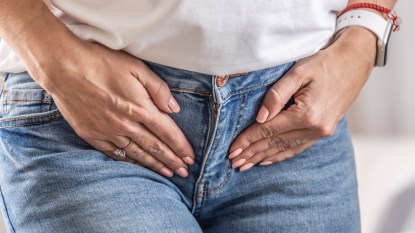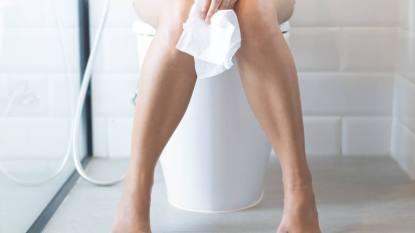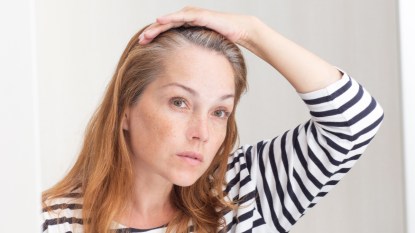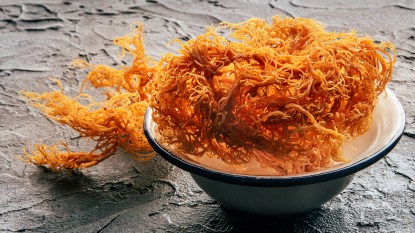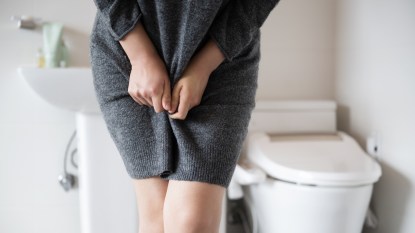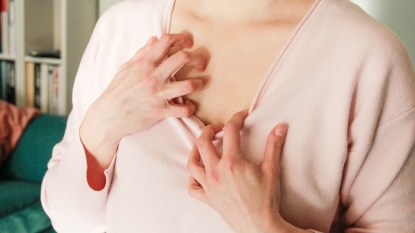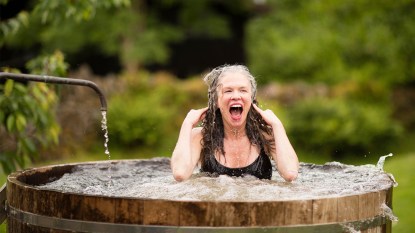Here’s How Long Most People Stayed on the Wagon During Dry January

Dry January is not about a lack of rain, or getting chapped skin from the cold (although that can happen!). In this case, the term ‘dry’ refers to abstaining from alcohol. Post-holiday season, with its many opportunities for indulgence, many people challenge themselves to stay away from booze for a bit, and the month off from drinking gives them a chance to see how a short period of sobriety or abstinence affects their daily lives.
Dry January, developed in 2013 by British charity org Alcohol Change UK has become a worldwide health trend. And for good reasons — including a padded wallet, trim(mer) waistline, and better mental and physical health. But it’s not always easy — particularly during the past couple of years, when many of us have been forced to isolate from our family, friends, and day-to-day activities.
Dry January Stats
A recent poll published by Sunnyside (formerly Cutback Coach), an online membership service for those who want to develop mindful drinking habits, showed some interesting findings. At the beginning of each week, 2,000 members tried the dry January challenge. Of those, only 30 percent managed to stay on the wagon for the entire 31 days. As for the other 70 percent, almost half fell off the wagon within the first week, with the numbers dwindling as week four approached.
Although the challenge has been popular with millennials, by the end of this January the highest success rate was among those in the 56+ age category. The lowest success rate was reported among those ages 36 – 45. Data shows that men had more success with the challenge than women did: only 24 percent of women stayed managed to avoid alcohol all month, while 32 percent of men mastered the challenge. This is in line with current — and disturbing — statistics on women and alcohol consumption, particularly since the beginning of 2020. Unfortunately, women whose alcohol consumption exceeds recommended limits have greater health risks, due to differing body composition, among other lesser variables. According to CDC.gov, “Although men are more likely to drink alcohol and consume larger amounts, biological differences in body structure and chemistry lead most women to absorb more alcohol and take longer to metabolize it.”
These statistics only emphasize how important it is for every one of us to evaluate our relationship to alcohol. Dry January is a great way to learn how brief periods of sobriety feel to you. If you are struggling with alcohol and feel you need more structure and support, there are always 12-step programs and sober curious groups to explore.
Going without a drink for even a week is something you can feel, physically and mentally. This is because alcohol, and simultaneous absence of it, has such a profound effect on our bodies and minds. According to a study published by the Canadian Medical Association Journal in 2019, many women report improvements in their mental health after abstaining from alcohol periodically — which makes sense, as alcohol is known to be a depressant.
Tips for Next Dry January
If you tried Dry January and didn’t succeed, you can always try again next year — or try a sober October in the fall. But really, you can experiment with taking a break from alcohol anytime you please. Anyone can choose to take a long look at themselves whenever they are ready. For some, that might mean never. For others, it could be today. Just remember, no one is a failure who makes an effort, be it big or small. Most people who try Dry January report learning valuable lessons about themselves by participating, whether or not they manage to stay away from alcohol for the entire month.
When the time comes that you want a break from alcohol, there are some truly delicious alcohol-free alternatives out there. If you’re hankering after a glass of wine, SipC is a great option. In the mood for a rosé? Try a four-pack of their alcohol-removed bubbly. What about a mocktail? (Who doesn’t love a beautifully-served drink that won’t give you a hangover?) Try your hand at some of these popular mocktail recipes for an alcohol-free yet fancy evening. Craving something yummy and healthy? Shrubbly is an alcohol-free, caffeine-free, not-too-sweet option (and it’s available on Amazon, too).
Whatever you choose to drink, stay safe, healthy, and true to yourself. If you do these things, you’ll succeed at anything. In the meantime, there’s always next year!


